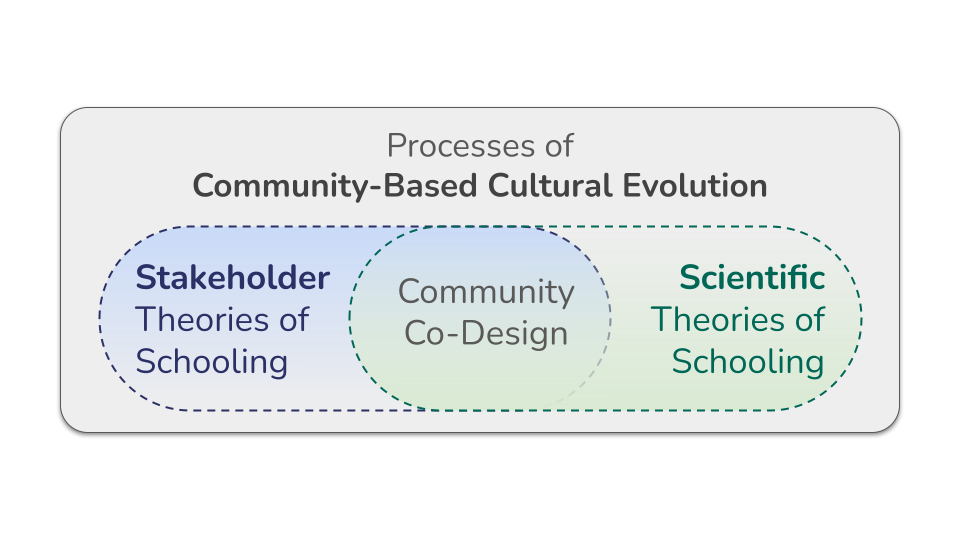Theories of Schooling
All humans that grow up attending or adjacent to schools are likely to develop intuitive everyday “theories” about the nature, purpose, function, and potential optimization of schooling within society.
Some humans will go on to advance and refine these everyday ethnotheories through scientific investigation, knowledge synthesis, and/or other disciplinary ways of knowledge building. Thus, there exists across humanity a vast and diverse landscape of such Theories of Schooling, which can, locally and collectively, form a foundation for community-based school improvement processes everywhere.
Understanding Theories of Schooling
Theories of Schooling are phenomena that scientists as well as whole school communities can study with great interest and benefit. Understanding the full diversity of local Theories of Schooling presents a novel interdisciplinary focus for community science projects.
Our proposed Structure of Knowledge for Theories of Schooling (from Eirdosh & Hanisch, in review) suggests that such theories may be structured in terms of a range of sub-domains, specific aspects of schooling on which humans may reason. As well, Theories of Schooling may be informed by a range of super-domains, broader or more distal time and space generalizations about the human condition, including human origins, diversity, and flexibility.
Thus, scientists and school community members, including especially students, can begin to understand the structure and diversity of local theories of schooling as related to scientific perspectives and real world school outcomes.
Evolving Theories of Schooling
The ultimate aim of our community science lab is to engage students and school communities in practical school improvement, informed by scientific and community-based perspectives. In this context, community science projects can be developed to focus on specific super- and sub- domains as part of advancing local schools as field sites for community-based cultural evolution.
Learn more about our Theory of School Improvement, or read our preprint chapter describing the latest conceptual advancements within our community science lab model:



